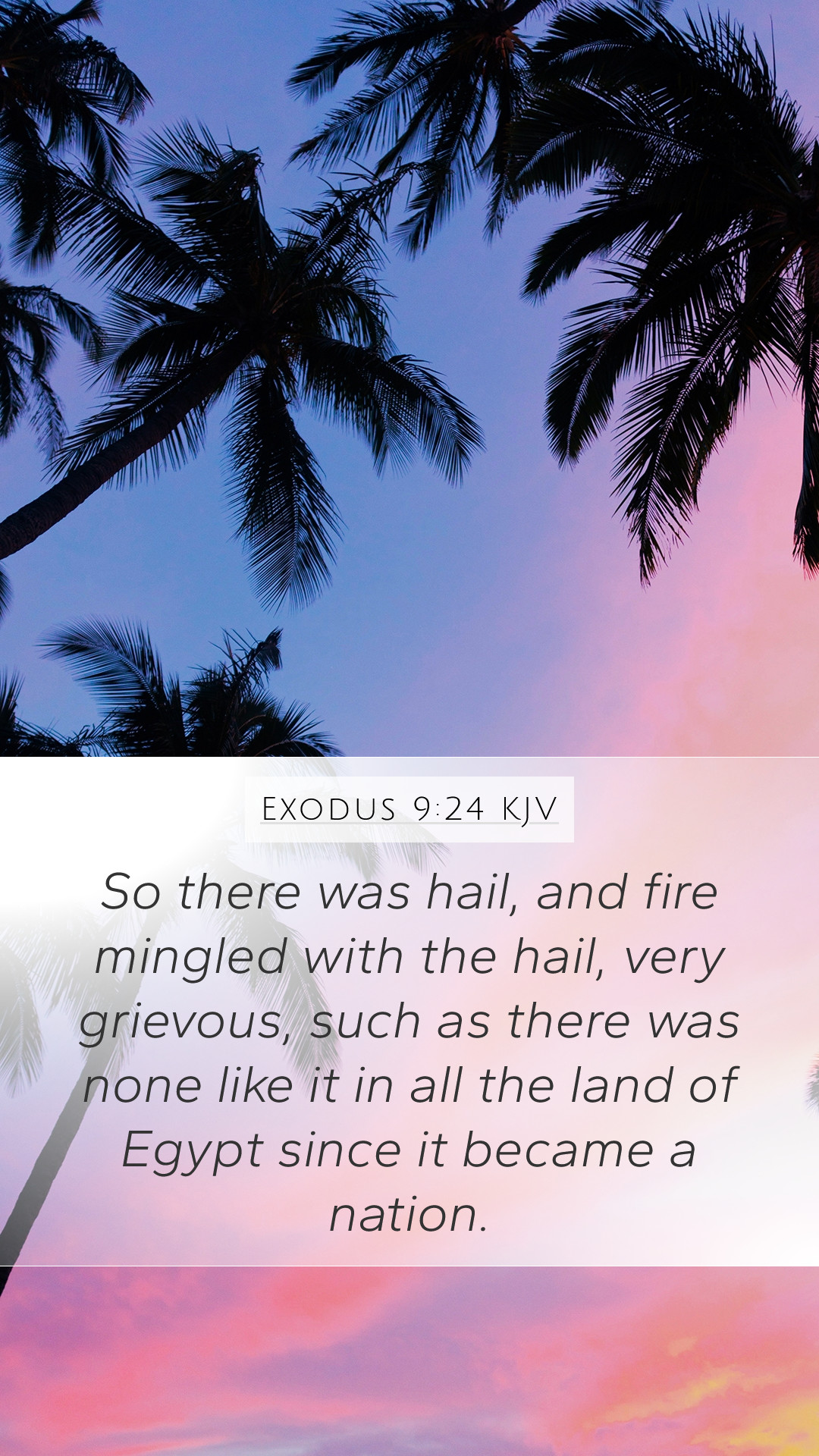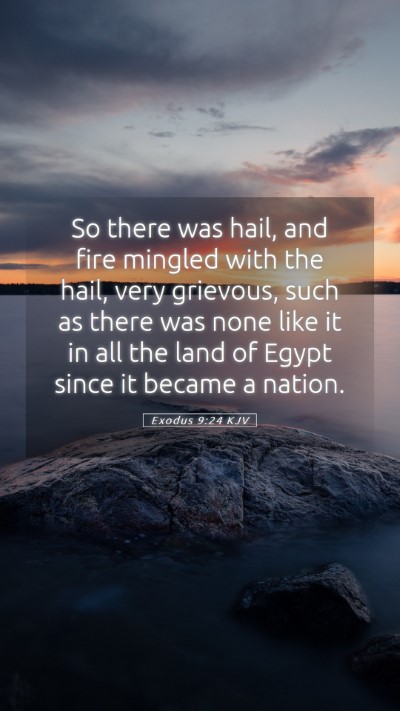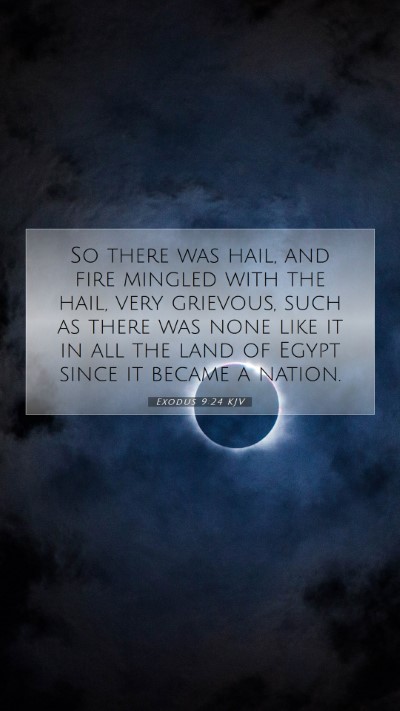Bible Verse Commentary on Exodus 9:24
Exodus 9:24 states, "So there were hail and fire mingled with hail, very grievous; such as there was none like it in all the land of Egypt since it became a nation." This verse occurs during the series of plagues that God sent upon Egypt to persuade Pharaoh to release the Israelites from bondage.
Contextual Analysis
The context of Exodus 9:24 is essential for understanding its meaning. At this point in the biblical narrative, God has already sent several plagues upon Egypt, each serving as a warning and a demonstration of His power. The previous plagues included water turning into blood, frogs, lice, flies, livestock sickness, boils, and locusts. Each instance was meant to pressure Pharaoh into releasing the Israelites while simultaneously showcasing God's sovereignty over nature and the Egyptian gods.
Biblical Exegesis of Exodus 9:24
The term "hail" in Exodus 9:24 signifies not only physical destruction but also acts as a symbol of divine judgment. The description of hail mingled with fire illustrates a unique and terrifying phenomenon, emphasizing God's authority over the elements. According to Matthew Henry, this dual destruction illustrates both God's mercy, by offering opportunities for repentance, and His ultimate power to enact judgment.
Albert Barnes adds that the intensity of the hail, described as "very grievous," underscores the severity of this particular plague, marking it as unparalleled in its impact throughout Egypt's history. This context indicates that God's intentions were not only to punish but also to compel the Egyptians to recognize His power.
Adam Clarke elaborates that this plague serves to highlight God's response to Pharaoh's hard heart. Where Pharaoh continuously resisted the call to freedom for the Israelites, each consequent plague escalated in severity, conveying a learning moment for Pharaoh and the Egyptians regarding obedience and divine authority.
Significance of the Plague
The significance of the hail and fire in Exodus 9:24 extends beyond the immediate physical destruction. It symbolizes God's judgment upon Egypt for their oppression of the Israelites and their refusal to acknowledge Him. The imagery of fire and hail reflects the severity of God's wrath and His control over both natural disasters and man-made oppression.
Applying Exodus 9:24 to Daily Life
When considering the implications of Exodus 9:24, one can draw parallels to contemporary scenarios of moral and ethical judgment. This scripture challenges individuals to reflect on their own lives and understand the serious consequences of defiance against divine principles. Bible study groups and online Bible studies can use this verse for meditation and discussion regarding the themes of obedience, repentance, and the understanding of God's will in the lives of believers.
Related Bible Cross References
- Exodus 7:14-24 – The first plague: Water turned to blood
- Exodus 8:16-19 – The plague of gnats
- Exodus 9:1-3 – Introduction to the plagues as acts of judgment
- Exodus 10:1-7 – The plague of locusts
- Revelation 8:7 – Symbol of hail as judgment in prophetic literature
Conclusion
In summary, Exodus 9:24 is a vivid demonstration of God's power and judgment, serving as a call to repentance for Pharaoh and the Egyptians. It offers profound insights regarding the nature of disobedience and the consequences that follow. This verse, along with its surrounding context, provides crucial lessons for understanding Scripture and applying biblical teachings to one’s life.


